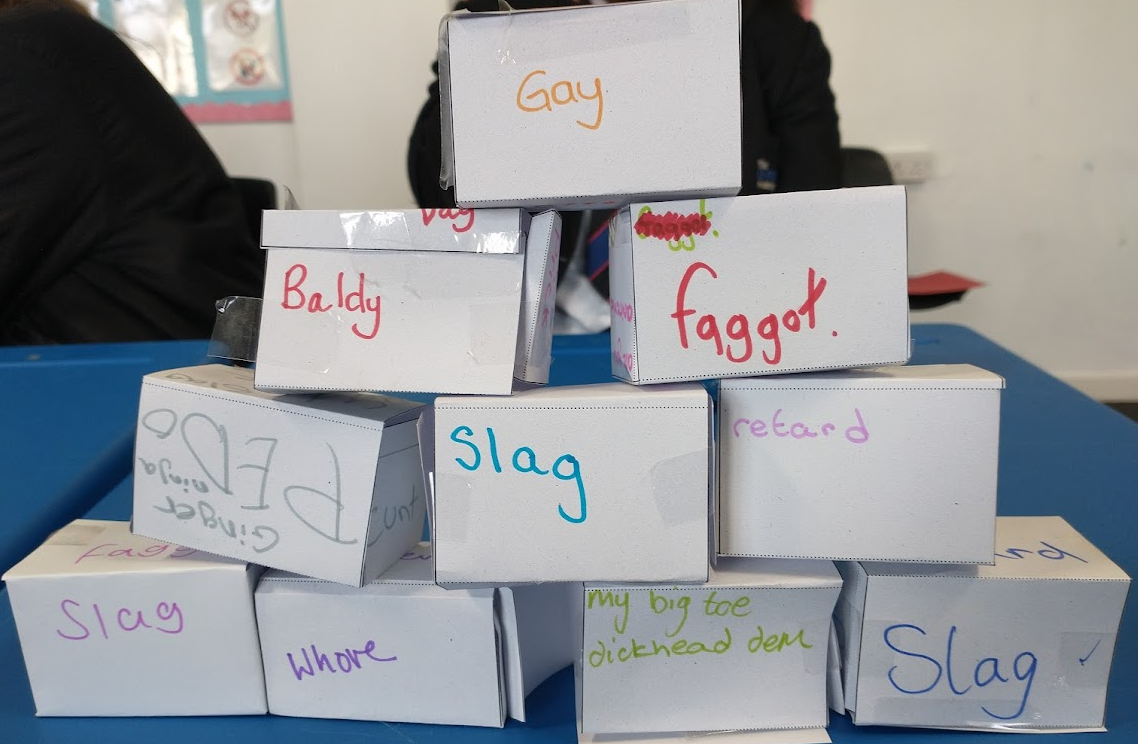Smashing the f #@*ing wall down or Good reasons for discussing bad language
29 June 2023
Oxfordshire Youth’s Building Resilience programme goes where other programmes fear to tread!

29 June 2023
Oxfordshire Youth’s Building Resilience programme goes where other programmes fear to tread!

Young people are subjected to, and weaponise against each other, a huge arsenal of hurtful words. Adults packing children off to school in the morning are often blissfully unaware of the verbal abuse they will be exposed to as a normal part of their day.
Terms relating to sexual orientation, racial identity, parts of the human body and impaired intellectual ability were all very popular when Oxfordshire Youth’s Youth Work Training Manager, Hayley Reynolds ran a workshop with secondary school students in Oxford recently. As part of Oxfordshire Youth’s Building Resilience sessions, Hayley invited the workshop participants in a school to think about all the hurtful words people use and turn them into a ‘wall of hate’ (or paper boxes!).
The students were then asked to think about the impact of all the words and who was being targeted by them. Everyone reflected on how they felt when on the receiving end of various terms. Seeing the wall of insults deeply affected one of the pupils who had been more than happy to supply quite a few of the words for the wall during its construction, commenting, ‘It’s actually quite shocking when you see them all in front of you like this’.
Our workshops on hate speech are intended to make young people consider their own prejudices and challenge stereotypical thinking, because hate expressed in words is a form of violence that can easily be overlooked or ignored. Through discussions with young people during the sessions, our skilled facilitators help them to start thinking about their own prejudices, and how they influence behaviour. The session goal is to ‘sow the seed’ that these attitudes and words are damaging to others and to create an understanding that all of us have the power to not only change our behaviour, but to challenge others who may use hurtful language.
Dr. Robbie Love, lecturer in English Language at Aston University’s School of Social Sciences and Humanities believes that open discussions about swearing may help students to better understand the difference between casual, everyday curse words and ‘very offensive’ language such as racial slurs. ‘Generally, swear words get weaker over time because you get used to hearing them and they lose their strength.’ But there are also words, not necessarily swear words, that remain highly taboo in many contexts, for instance racial slurs, or those that relate to sexuality or gender identity. ‘When we are talking about minoritised groups within a particular society, there are potentially very, very offensive words that are still so taboo and inappropriate.’
Building Resilience is a school exclusion reduction programme delivered in educational settings. Its number one goal is to keep young people at risk of being excluded from school or college in education at a time when they are at a tipping point away from it. To do this, our Building Resilience team works with pupils identified by their schools and the Thames Valley Police Violence Reduction Unit as being at risk of exclusion.